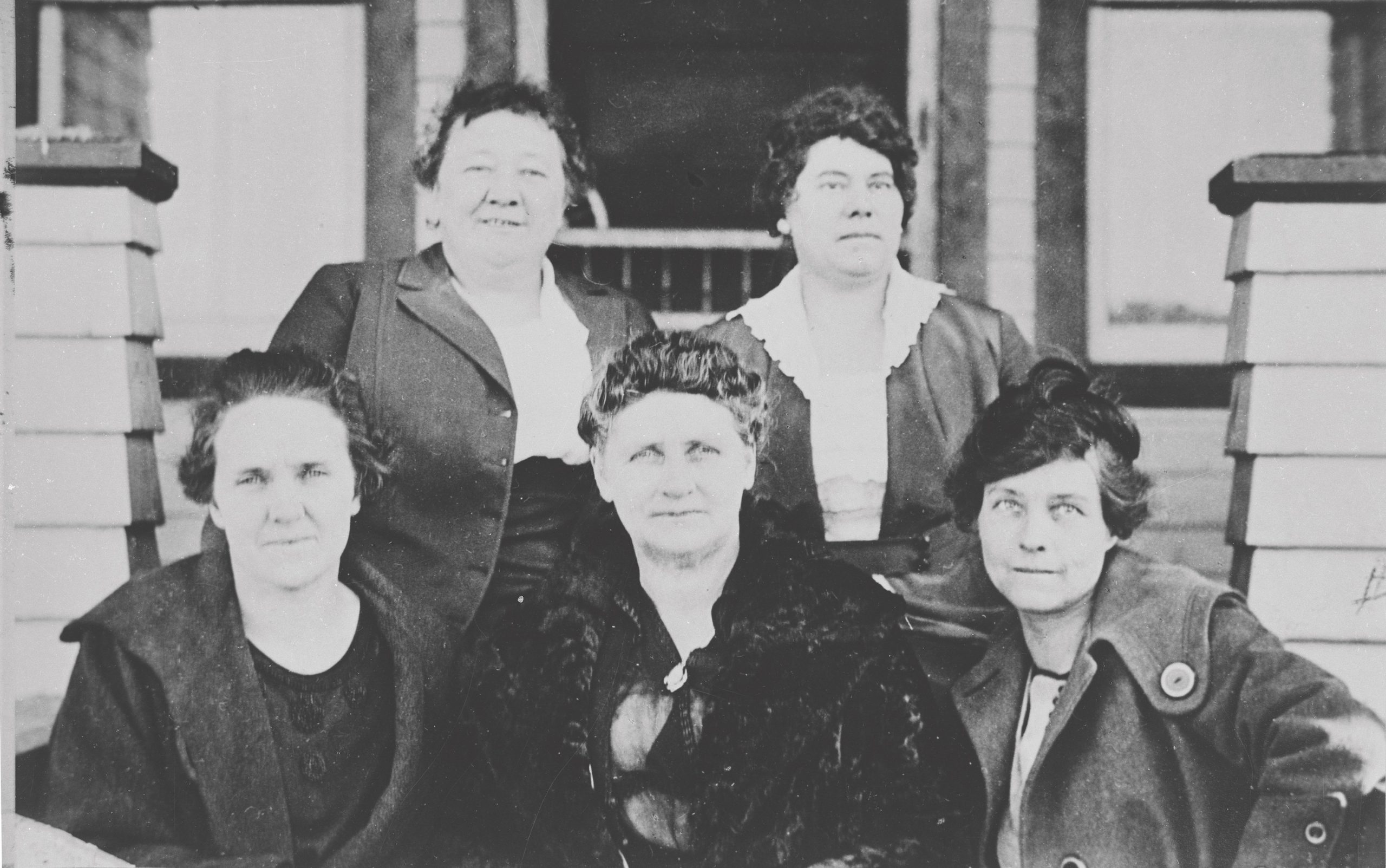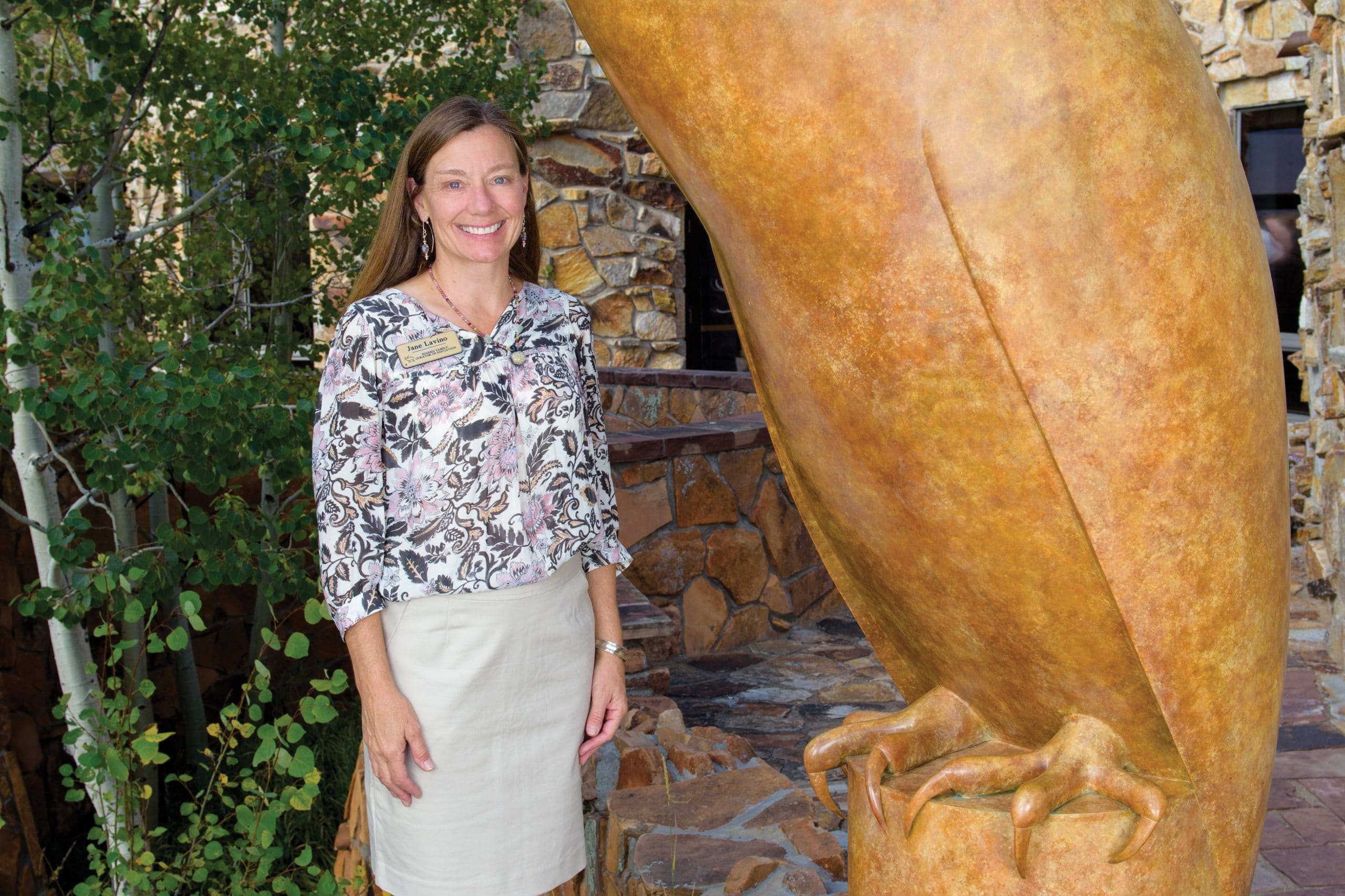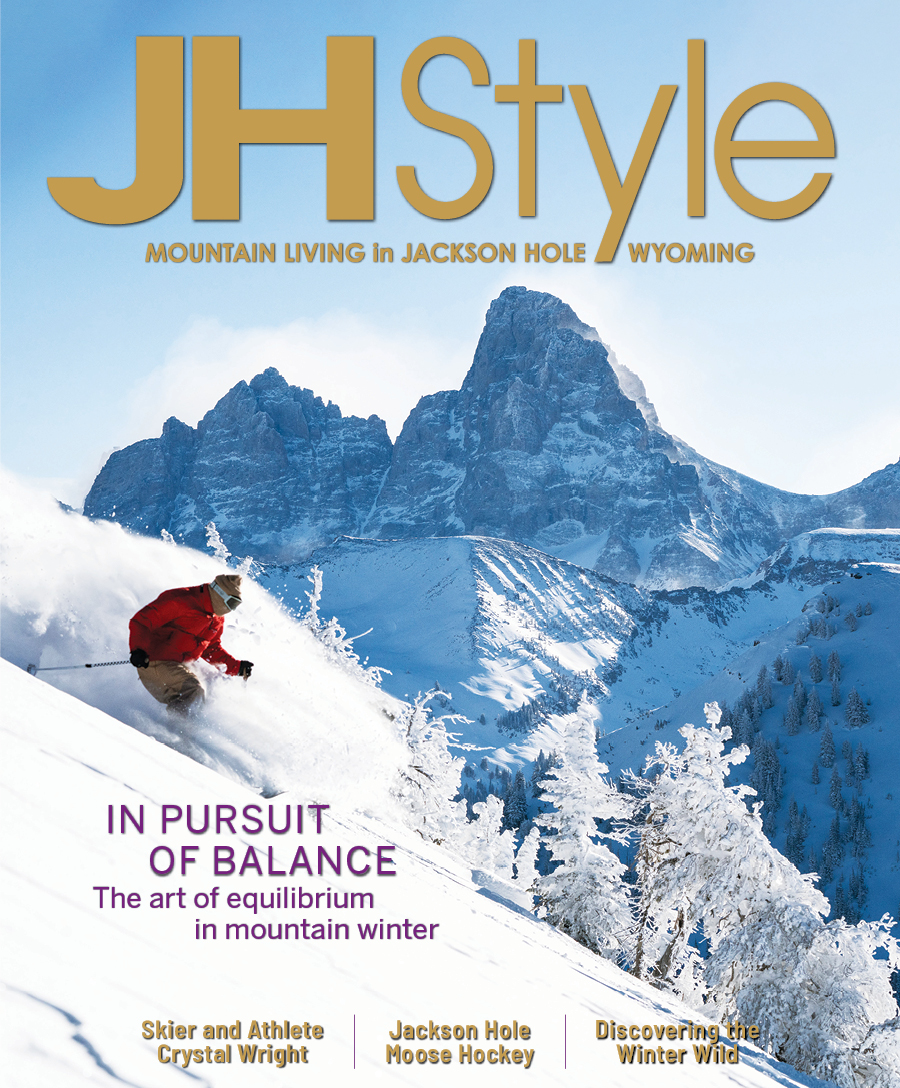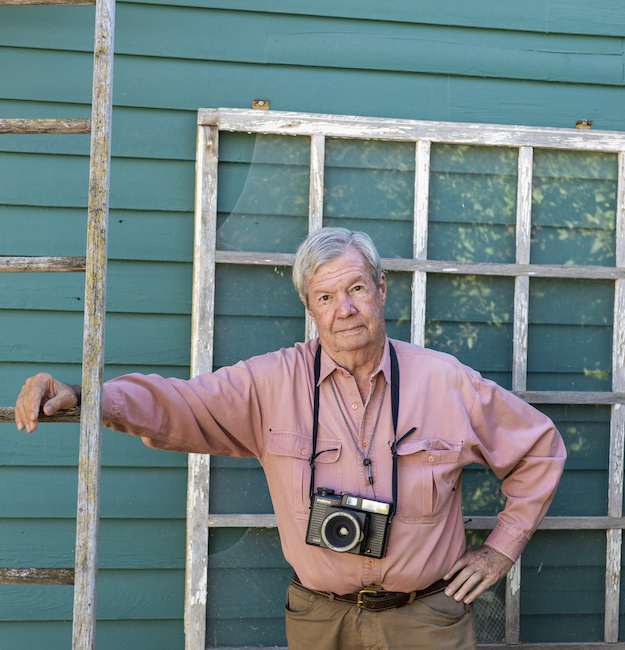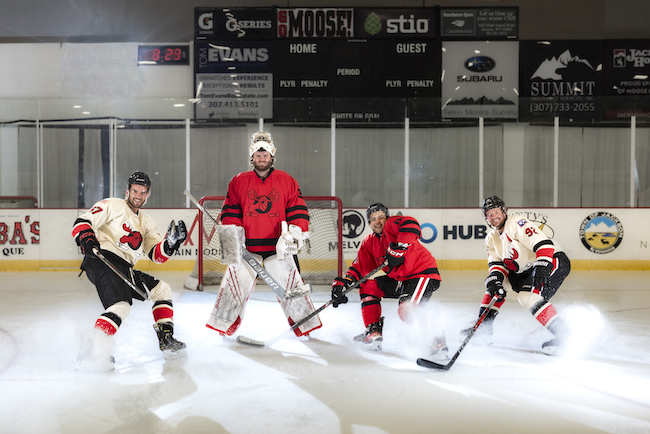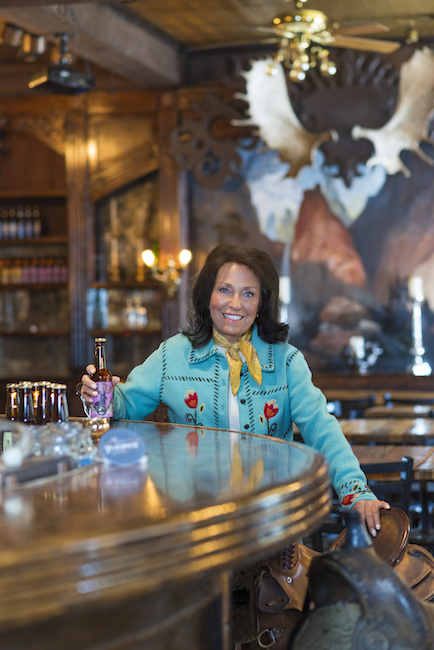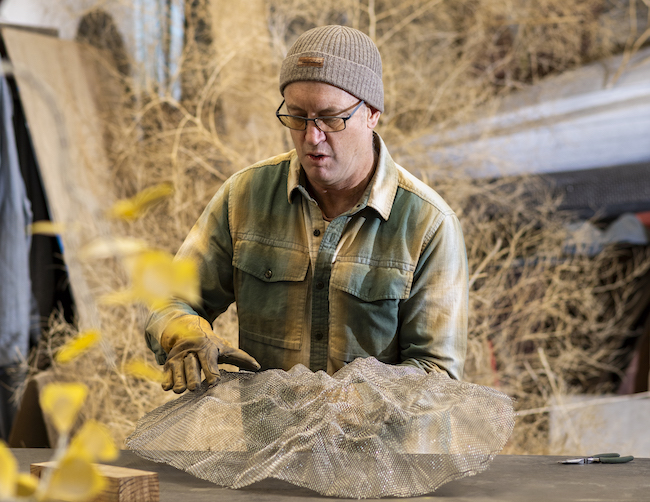A Passion for Place
23 Apr 2017
Teton Science Schools Transform Lives
Winter 2016/2017
Written By: Ben Graham | Images: Courtesy JayGoodrich.com, Amy Lorenz, Jenny Baysa & Teton Science Schools
Amy Lorenz was in the seventh grade when she first visited the rugged landscape of Jackson Hole during a Teton Science Schools field ecology program. She remembers the joy of hiking in the backcountry with her fellow campers and learning about the area’s flora and fauna.
But for the Pennsylvania native, the program also left a deeper mark. “I think that’s when I first realized there was a place for this sort of nerdy naturalist inside of me,” Lorenz says. “I met a lot of other kids like me.” Years later, Lorenz would return to the valley to complete her master’s degree through Teton Science Schools’ graduate program, which culminated in a degree from the University of Wyoming in natural science education. Today, she works at the Harvard Museum of Comparative Zoology on the Encyclopedia of Life global biodiversity project. In this role, she helps schools develop curriculum based on local ecosystems. “I think [my time at Teton Science Schools] is when I first realized there was a place for this sort of nerdy naturalist inside of me. I met a lot of other kids like me.” Amy Lorenz “My goal is that anyone who wants to use our curriculum and use this place-based model can apply it wherever they are,” Lorenz says. “The major focus is using the local ecosystem and community as the place where they start.”
That is an ethos she can trace back to her time with Teton Science Schools. For five decades, people from all walks of life have enjoyed the organization’s programs, learning about the Jackson Hole region's ecology and natural systems through hands-on, experiential learning.
The organization got its start in the 1960s when a science teacher named Ted Major came up with a novel way to teach the natural sciences. Students would learn best, he thought, by actually being out in nature. His idea was to “expand the classroom into the outdoors,” as Teton Science Schools officials like to say.
In the summer of 1967, Major led 12 high school students on a six-week program of research projects and field trips in the wild areas surrounding Jackson Hole. By 1973, the organization was able to secure a lease with Grand Teton National Park to move the nonprofit to Elbo Ranch, near Kelly, where the campus remains today.
Since then, the program has grown into a sprawling, multi-pronged, nonprofit educational organization with four campuses in Wyoming and Idaho.
“My goal is that anyone who wants to use our curriculum and use this place-based model can apply it wherever they are,” Lorenz says. “The major focus is using the local ecosystem and community as the place where they start.”
That is an ethos she can trace back to her time with Teton Science Schools. For five decades, people from all walks of life have enjoyed the organization’s programs, learning about the Jackson Hole region's ecology and natural systems through hands-on, experiential learning.
The organization got its start in the 1960s when a science teacher named Ted Major came up with a novel way to teach the natural sciences. Students would learn best, he thought, by actually being out in nature. His idea was to “expand the classroom into the outdoors,” as Teton Science Schools officials like to say.
In the summer of 1967, Major led 12 high school students on a six-week program of research projects and field trips in the wild areas surrounding Jackson Hole. By 1973, the organization was able to secure a lease with Grand Teton National Park to move the nonprofit to Elbo Ranch, near Kelly, where the campus remains today.
Since then, the program has grown into a sprawling, multi-pronged, nonprofit educational organization with four campuses in Wyoming and Idaho.


 Today, Teton Science Schools operates seven different programs, including everything from summer field education programs to a pre-K through 12th grade private educational institution known as the Journeys School.
Most recently, in 2015, the nonprofit merged with The Murie Center and continues to run its conservation and education programs in Grand Teton National Park. The organization even runs a wildlife tour program for tourists, allowing visitors to get up close and personal with herds of bison and elk in the company of a trained naturalist guide.
But Teton Science Schools is still best known for its work with youth. Jenny Baysa is yet another one of the school’s accomplished alumni. Like Lorenz, she first visited Jackson Hole through a summer program with the nonprofit in 2012. Coming from Los Angeles, the experience was foreign to her in nearly every way.
“We didn't really get to go outside of our comfort zone in Los Angeles,” she says. But her time in the backcountry of Jackson Hole opened her eyes.
“When I first got to Jackson I wasn't considering studying wildlife,” she says.
“Once I got there, I started realizing it was really something I was interested in.”
Today, Baysa is studying wildlife biology at the University of California-Davis
Both Baysa and Lorenz were able to use Teton Science Schools programs to refine their passions and turn their love of outdoor education into something they could share with others.
“Teton Science Schools provided me with the space to take this disorganized interest I had and put it together to work in a meaningful way in education,” Lorenz says.
Today, Teton Science Schools operates seven different programs, including everything from summer field education programs to a pre-K through 12th grade private educational institution known as the Journeys School.
Most recently, in 2015, the nonprofit merged with The Murie Center and continues to run its conservation and education programs in Grand Teton National Park. The organization even runs a wildlife tour program for tourists, allowing visitors to get up close and personal with herds of bison and elk in the company of a trained naturalist guide.
But Teton Science Schools is still best known for its work with youth. Jenny Baysa is yet another one of the school’s accomplished alumni. Like Lorenz, she first visited Jackson Hole through a summer program with the nonprofit in 2012. Coming from Los Angeles, the experience was foreign to her in nearly every way.
“We didn't really get to go outside of our comfort zone in Los Angeles,” she says. But her time in the backcountry of Jackson Hole opened her eyes.
“When I first got to Jackson I wasn't considering studying wildlife,” she says.
“Once I got there, I started realizing it was really something I was interested in.”
Today, Baysa is studying wildlife biology at the University of California-Davis
Both Baysa and Lorenz were able to use Teton Science Schools programs to refine their passions and turn their love of outdoor education into something they could share with others.
“Teton Science Schools provided me with the space to take this disorganized interest I had and put it together to work in a meaningful way in education,” Lorenz says. 
